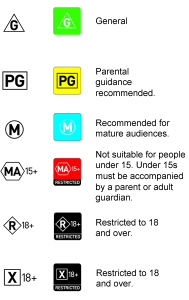WHO report vindicates CCHR and the many groups that have fought worldwide for the recognition of psychiatric human rights violations, including involuntary commitment and forced electroshock and other biomedical, including drug treatments.
By Jan Eastgate
President, CCHR International
Mental Health Industry Watchdog
June 11, 2021
The World Health Organization (WHO) has released a damning report that lashes out against coercive psychiatric practices, which it says “are pervasive and are increasingly used in services in countries around the world, despite the lack of evidence that they offer any benefits, and the significant evidence that they lead to physical and psychological harm and even death.”[1] It points to the United Nations Convention on the Rights of Persons with Disabilities (CRPD) which in essence, calls for a ban on “forced hospitalization and forced treatment.”[2]
Citizens Commission on Human Rights International welcomes the report not just for it recognizing psychiatric abuses and torture as being rife, but also as a vindication of CCHR’s efforts since 1969 and other groups that have fought for the recognition of patents’ rights violations that WHO now acknowledges. CCHR’s Mental Health Declaration of Human Rights, written in 1969, includes many of the rights that the W.H.O. report now addresses. [3]
For example, WHO points to a series of UN guidelines and Human Rights Council resolutions that have called on countries to tackle the “unlawful or arbitrary institutionalization, overmedication and treatment practices [seen in the field of mental health] that fail to respect… autonomy, will and preferences.”[4] People who are subjected to coercive practices report feelings of dehumanization, disempowerment and being disrespected, WHO further states.[5]
CRPD says patients must not be put at risk of “torture or cruel, inhuman or degrading treatment or punishment” and recommends prohibiting “coercive practices such as forced admission and treatment, seclusion and restraint, as well as the administering of antipsychotic medication, electroconvulsive therapy (ECT) and psychosurgery without informed consent.”[6]
Coercive Practices Create Harm
Psychiatry has failed to take responsibility for the fact that its own coercive practices have caused the stigmatization which drives medical students and patients away from it, while it tries to blame this on its critics. WHO says stigmatization exists among the general population, policymakers and others when they see those with mental disabilities as being “at risk of harming themselves or others, or that they need medical treatment to keep them safe”—a psychiatric mantra—which results in a general acceptance of coercive practices such as involuntary admission and treatment or seclusion and restraint.[7]
Abusive practices CCHR has documented include:
- In the U.S., children—who are too young to consent to electroshock—are subjected to it, even at the age of five or younger. American psychiatrists are administering it despite W.H.O. reporting sixteen years ago that “There are no indications for the use of ECT on minors, and hence this should be prohibited through legislation.” Yet the American Psychiatric Association has called for greater use of this brain-damaging, barbaric practice on minors.[8]
- Many patients are forcibly detained and drugged under U.S. involuntary commitment laws, and with telepsychiatry now available, psychiatric hospitals are using this to incarcerate people against their will for their insurance.
- Recent reports of the troubled teen industry in the U.S. highlight how coercive restraint use in psychiatric and behavioral facilities is common, despite leading to deaths of youths, without accountability. Teenagers gasping for air, crying out that they “can’t breathe” have died undergoing restraint to control their behavior.[9]
- In New Zealand, a Royal Commission Inquiry into Child Abuse begins its investigation on June 14 into the torture of children with an electroshock device at the now-closed state psychiatric institution, Lake Alice. Children were not anesthetized but punitively shocked directly to various body parts, including genitalia.[10]
- Despite a March 2020 Food and Drug Administration ban on a similar shock device used at the Judge Rotenberg Center in Massachusetts for behavior modification, the torturous procedure is still being used.[11]
- Until recently, psychiatrists such as Patrick McGorry in Australia, pre-drugged patients in the Brave New World theory that this could prevent them from becoming psychotic, yet the antipsychotics prescribed for this list psychosis as a side effect. Similar practices are researched in the U.S.[12]
Many U.S. states allow electroshock to be given to involuntary patients against their will, constituting torture, as UN agencies have clearly stated. The WHO report specifically highlights the problem that “coercive practices are used in some cases because they are mandated in the national [or state] laws of countries.”[13]
Further, coercion is “built into mental health systems, including in professional education and training, and is reinforced through national mental health and other legislation.”[14]
These laws need to change, similar to those enacted in Australia where criminal penalties are enshrined in several mental health laws, should certain psychiatric treatments be administered, violating patients’ rights.
Countries must also ensure that “informed consent” is in place and that “the right to refuse admission and treatment is also respected.”[15] “People wishing to come off psychotropic drugs should also be actively supported to do so, and several recent resources have been developed to support people to achieve this,” WHO says.[16]
No Accountability: No Funding
WHO sees community mental health as the alternative to egregious hospitalization and the biomedical paradigm—psychotropic drugs, electroshock and psychosurgery—for treating people’s emotional and mental problems. This would require a massive injection of funds. However, the checks and balances do not exist to prevent abuses occurring in the community. Greater accountability, including criminal penalties, are needed.
The same funding limitations also apply to psychiatric research, which the WHO highlights have been dominated by a biomedical model—neuroscience, genetics and psychopharmacology. It quotes the astounding admission from Thomas Insell, former director of the National Institute for Mental Health (2002 to 2015), who said: “When I look back on that, I realize that while I think I succeeded at getting lots of really cool papers published by cool scientists at fairly large costs—I think US$ 20 billion—I don’t think we moved the needle in reducing suicide, reducing hospitalizations, improving recovery for the tens of millions of people who have mental illness.”[17]
We cannot keep flooding more money into a failing and harmful mental health system, when accountability either doesn’t exist or is so ineffective that perpetrators can get away with murder.
Abolish Involuntary Hospitalization
In the U.S., in the wake of acts of senseless violence, psychiatrists have called for greater rights to involuntarily commit individuals—the antithesis of what the WHO is advocating. In fact, it debunks the idea that involuntary admission is necessary under so-called grounds such as “dangerousness” or “lack of insight.’”[18] Or that the person is “‘at risk of harming themselves or others, or that they need medical treatment to keep them safe,’” with WHO saying that such practices lead to an “over-emphasis on biomedical treatment options and a general acceptance of coercive practices such as involuntary admission and treatment or seclusion and restraint.”[19]
“Although challenging, it is important for countries…to eliminate practices that restrict the right to legal capacity, such as involuntary admission and treatment,” it says.[20]
The late Dr. Thomas Szasz, professor of psychiatry, a fellow of the American Psychiatric Association, and co-founder of CCHR, stressed this point sixty years ago. Indeed, he was more forthright in stating: “Involuntary mental hospitalization is like slavery. Refining the standards for commitment is like prettifying the slave plantations. The problem is not how to improve commitment, but how to abolish it.” Further, “The most important deprivation of human and constitutional rights inflicted upon persons said to be mentally ill is involuntary mental hospitalization….”[21]
CCHR will continue to monitor and document psychiatric abuses and with this WHO guideline against involuntary treatment, refer this to attorneys who may be able to seek charges of torture where forced treatment is administered. Until laws enact the necessary protections, more pressure is needed to bring abuses to account through the courts.
Report psychiatric abuse to CCHR.
References:
[1] “Guidance on Community Mental Health Services: Promoting Person-Centered and Rights-Based Approaches,” World Health Organization, 10 June 2021, p. 8, https://www.who.int/publications/i/item/9789240025707 (to download report)
[2] Ibid., p. 4
[3] https://www.cchrint.org/about-us/declaration-of-human-rights/
[4] Op. cit., World Health Organization, p. 5
[5] Ibid., p. 8
[6] Ibid., p. 7
[7] Ibid., p. 3
[8] Letter to Robert M. Califf, M.D., Commissioner, U.S. Food and Drug Administration, from the American Psychiatric Association, March 10, 2016, https://psychiatry.org/File%20Library/Psychiatrists/Advocacy/Federal/APA-FDA-ECT-reclassification-comments-03102016.pdf
[9] https://www.cchrint.org/2021/03/24/cchr-laws-inadequate-to-safeguard-troubled-teens-from-psychiatric-abuse/; https://www.cchrint.org/2021/02/17/utah-state-law-curbing-behavioral-restraint-use-on-children-youths-is-applauded-but-unconditional-ban-is-needed-nationwide/
[10] https://www.cchrint.org/2021/03/09/cchr-us-should-mirror-nz-child-shock-treatment-inquiry-to-ban-therapy/
[11] https://www.cchrint.org/2021/03/09/cchr-us-should-mirror-nz-child-shock-treatment-inquiry-to-ban-therapy/
[12] https://www.cchrint.org/2010/06/16/australian-psychiatrist-patrick-mcgorry-wants-his-pre-drugging-agenda-to-go-global/
[13] Op. cit., World Health Organization, p. 8
[14] Ibid., p. 8
[15] Ibid., p. 6
[16] Ibid., p. 201
[17] Ibid., p. 215
[18] Ibid., p. 7
[19] Ibid., p. 3
[20] Ibid., p. 6
[21] https://www.cchrint.org/about-us/co-founder-dr-thomas-szasz/quotes-on-involuntary-commitment/


